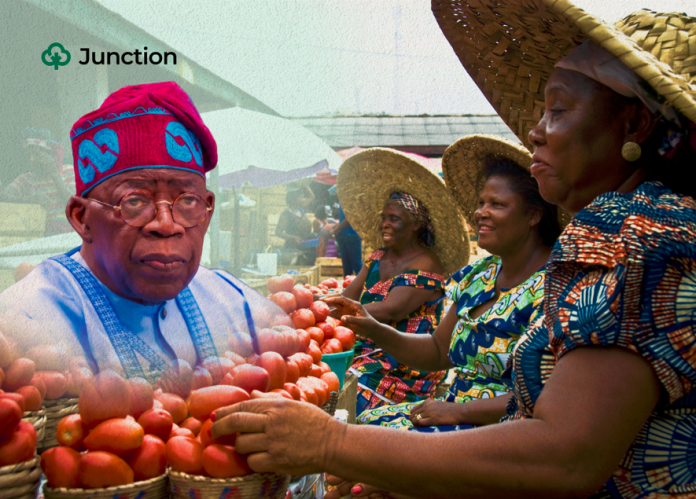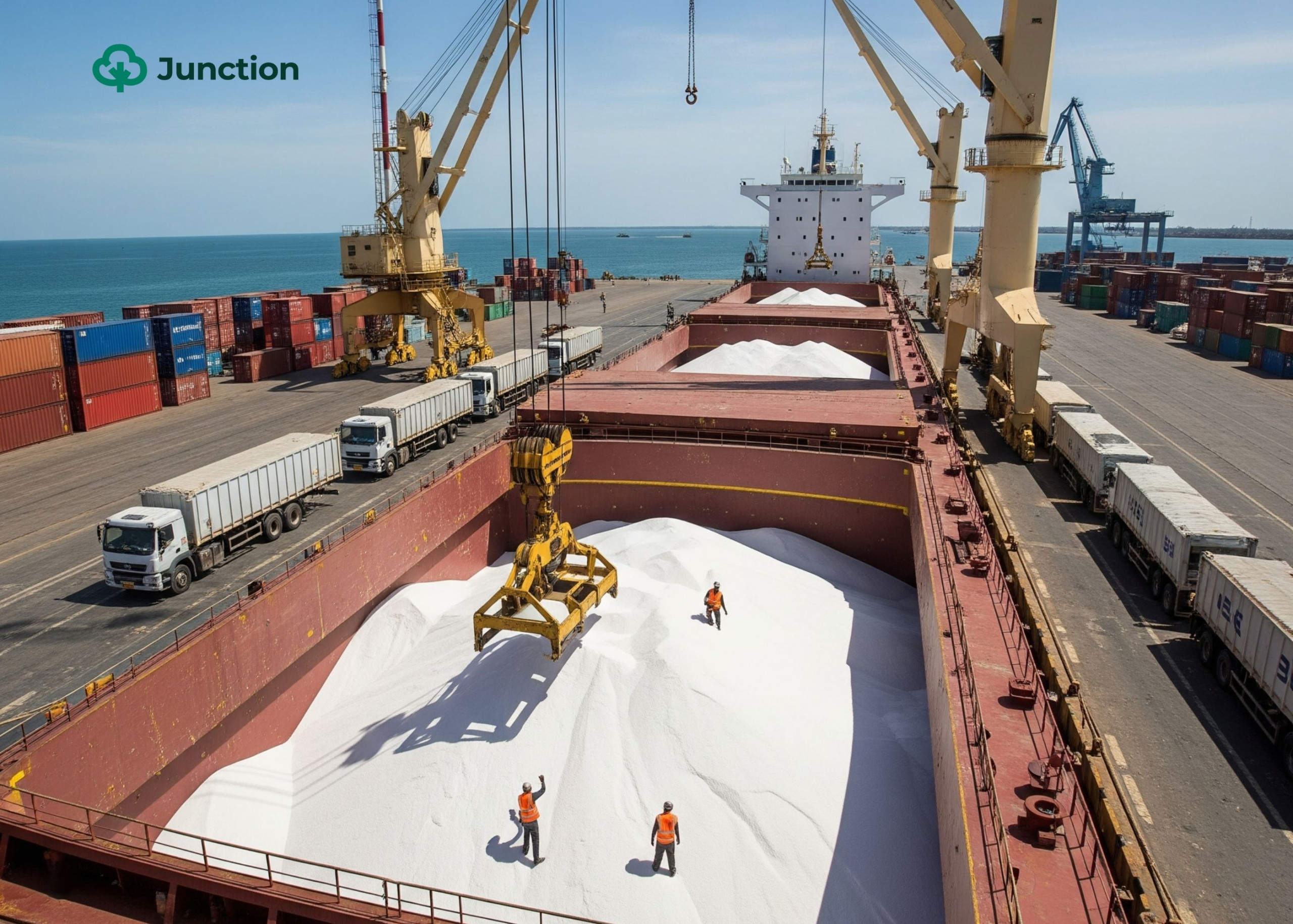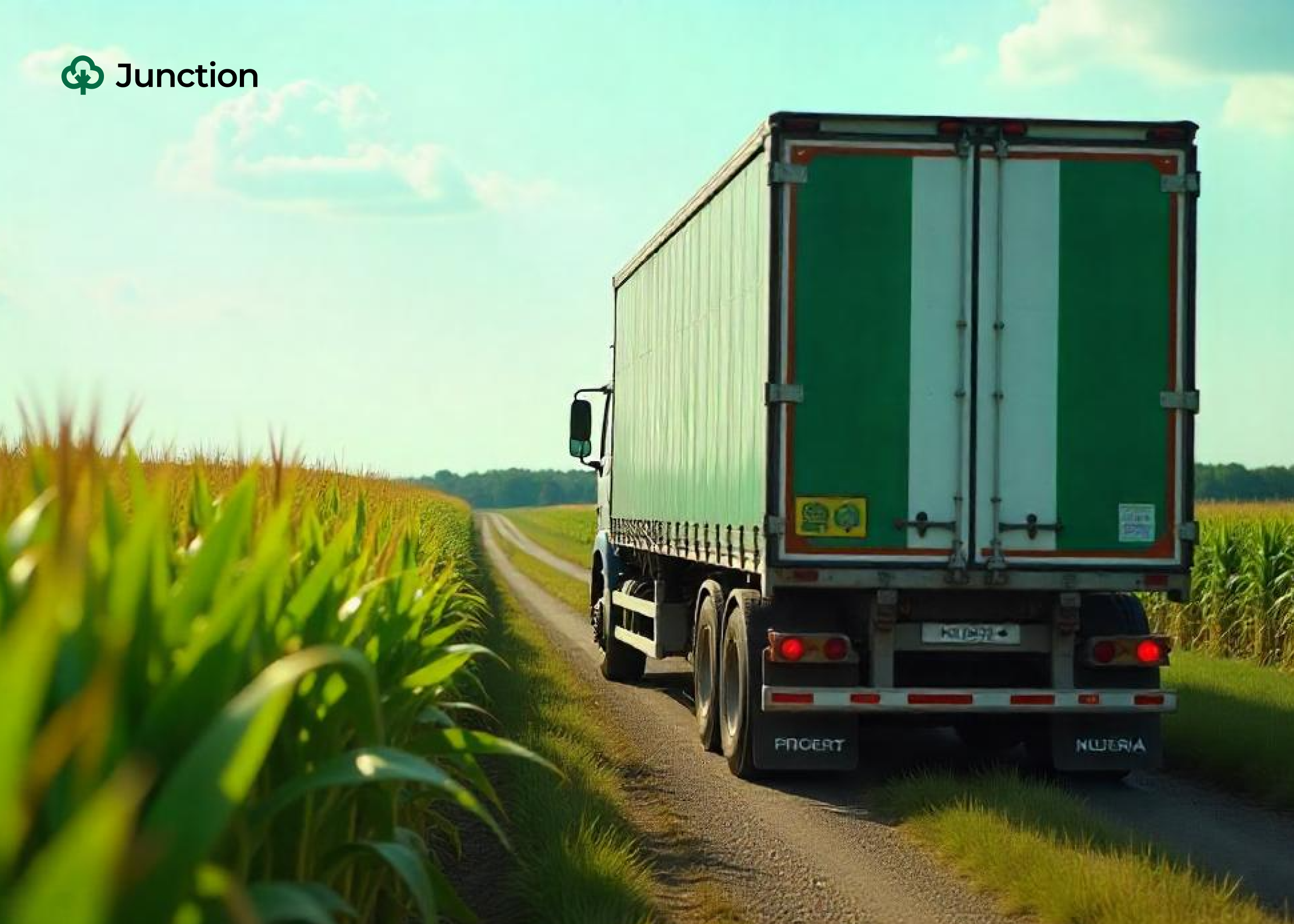Questions answered in this article:
– What is the current state of hunger and food affordability in Nigeria that prompts the need for food subsidies?
– What are some examples of nations that have attempted food subsidies and what were the outcomes?
– How can Nigeria approach food subsidy programmes to ensure that they are effective?
“One cannot think well, love well, sleep well, if one has not dined well.” — Virginia Woolf
The year is 2024. Nigerians are hungry. Prices of staple foods; rice, beans and maize, have gone up astronomically since the present administration, led by President Tinubu, came into power the year preceding. A number of sweeping reforms, ostensibly meant to reposition the country as economically viable, including exiting the fuel subsidy programme that was identified as a huge leak of resources, have launched an avalanche of sorrows for the ordinary citizens, as they have found themselves swimming against strong tides towards achieving optimal nutrition daily.
And the currents swirl stronger. Malnutrition, especially among the vulnerable groups of children and lactating mothers, is rife. Hitherto popularly consumed proteins like beef, fish, eggs, milk are making increasingly rare appearances in many diets, with many families abandoning the ‘luxuries’ altogether. Food inflation is at over 40 per cent, and an astonishing number of Nigerians, numbering 31.5 million, are at the risk of acute hunger by the June-August 2024 lean season. Hunger protests have been recorded in some cities in the country. Food insecurity is a reality brazenly staring many in the face.
A storm of activity, yet empty plates
In response to the food security challenges facing the country, the government has instigated a number of reforms to remedy the malady.
In the wake of a state of emergency declared on the agricultural sector to enhance food productivity upon inception, the administration launched a slew of activities, activating thousands of hectares of arable land to ramp up agricultural production, engaging in much publicised distribution of inputs to farmers across the nation, through different programmes, and basically blowing up a veritable sandstorm in huffing about activities in that regard.
But thus far, all that has not improved the common man’s diet. On the contrary, it has achieved the opposite effect. Beans, for example, which used to be the cheapest form of proteins, so much so it became a slang word for something cheap, as in; ‘you think say na beans?’, is no longer ‘beans’. Beans have become even more expensive than rice!
And the projections by many experts about the food security situation in the foreseeable future appear gloomy. Many decry the situation, urging for more action to avert a crisis. Some have gone farther in even predicting a severe nationwide food scarcity situation, in only a matter of months.
To avert a full-blown food crisis, which the nation is already on the precipice of, it’s pertinent at this point for the government to seriously consider providing food subsidies to complement other efforts in combating the situation. It goes beyond the tokenism of pockets of free food sacks to some here and some there. And in spite of its reported objections to the idea, the government should immediately begin these sales of essential foodstuffs, especially staples, at a quarter or even half the market price, at designated centres across the country, for the benefit of its citizens, and, immediately.
Can food subsidies work for Nigeria?
Evidently, a food subsidy regime can work for Nigeria, as it has proven so in a few countries, where the initiative helped in mitigating the effects of a food crisis situation. We shall take a look at two countries in this regard; Vietnam, in South East Asia, and Egypt in Africa. Note that these countries are also densely populated, with numbers exceeding the hundred million mark.
In Vietnam, (with a population of 100.3 million and the 16th most densely populated country in the world) rice, a dietary staple, was subsidised to ensure there was enough at an affordable price for everyone to eat, especially during times of lower production or economic hardship. It also benefited the farmers since there was a ready market for their produce, thereby encouraging massive production. That country’s agricultural sector witnessed its highest growth in recent years reaching 3.36 per cent in 2022.
Meanwhile, on the African continent, Egypt (with a population of 111 million) has long funded subsidies for staples such as bread, rice, oil and pasta, going back to after the second World War. The idea helped to prevent food shortages, and maintain social stability within that volatile zeitgeist. As a matter of fact, food subsidies are viewed by many Egyptians as the most tangible advantage of government spending, and according to a World Bank report, are ‘important for ensuring political stability.’ More significantly, food subsidies reduced poverty in Egypt by 9% in 2008/2009. The government of that country earmarked $4.1 billion dollars for food subsidies in 2023/2024.
Essentially, Nigeria can seek this means to help in mitigating unrest too, because truly, as the Novelist Buchi Emecheta famously puts it, ‘a hungry man is an angry one’. And the anger over daily soaring prices of foodstuff is palpable as the days go by.
“When the god of the stomach rumbles, there are casualties.” Reuben Abati
Granted, this measure has its own peculiar challenges, including literally swallowing a significant portion of government expenditure, and also being prone to leakages, such as round-tripping. However, the benefits outweigh the downsides, and it can be responsibly managed, where probity and accountability take precedence in the process.
Nigeria can actually afford it if its leaders make the necessary adjustments, cutting down on its notorious profligacy, unnecessary perks of power. And just as the government eventually weaned itself off fuel subsidy responsibilities, this initiative will be expected to outlive its usefulness, when all of the cumulative actions, being now embarked on by the government, bears fruit, literally.
Food distribution system using the NNPC model
I was on my way from an engagement, stuck in near-dusk traffic in public transportation the other day. One of these greedily seat re-adjusted vehicular contraptions meant to make the bus owner financially smile, but make many passengers physically groan. The discomfort in my case was further compounded by the inebriated breath of the passenger sitting next to me. I found myself having to stick my neck out of the window a few times to get some breather.
It was during one of such breathers, after a particularly pungent yawn of our friend seated close, that I saw it. The unmistakable and ubiquitous colours and logo. It was by the other side of the road in a shimmering distance. It was the NNPC fuel station. The idea hit me then. Government could consider setting up a food retailing system, much in the manner of the NNPC model.
The system, set up under the NNPC retail operations, began in August of 2002, under the administration of former president Olusegun Obasanjo. It was intended to provide the corporation with a vehicle for intervention in the market during periods of emergency and avoidable supply disruptions. It was also to serve as a benchmark for key players in the distribution chain and ensure safe, orderly and profitable retailing of products in the country, selling at officially approved prices. Generally, the idea was to combat situations of fuel scarcity in the country.
Well, what is sauce for the goose, goes for the gander. If the government saw the wisdom then in being a key player in the downstream oil sector, to provide products at much competitive rates for the benefit of its citizens, and assuring availability, then why can’t the same apply for food? After all, the latter is on a higher priority pedestal than the former. This arrangement could help in the meantime to stabilise soaring food prices, while other efforts run concurrently in improving the general food security situation of the country.
If the much-touted reforms and investments in the agricultural sector hopefully begin to yield results in the near future, then a sustainable supply of produce from all the hectares of farms being cultivated now, would be guaranteed. It is safe to assume that this system will enjoy huge patronage from Nigerians, which can be seen from the rush that accompanied the announcement of sale of seized food items, by the Nigerian Customs Service, only a couple of months ago. Although the project was abruptly called off after a stampede led to the unfortunate loss of lives of citizens, looking to buy foodstuff at bargain prices, it is instructive to note that such a programme, on a well-organised scale as is being proffered in this article, would be seen as a ray of hope in that direction. It will also, probably for the first time, be a means by which all Nigerians can actually, directly and tangibly benefit from the country’s resources. And the government’s initiatives in this regard wouldn’t be all noise and no substance.
Conclusion
In conclusion, while a food subsidy programme may not necessarily be the silver bullet to solving the food insecurity crisis in Nigeria, it can serve as a temporary palliative, to help reduce the strain on consumers who are already spending a large chunk of their income on food. This strain, amounting to almost 60% the average Nigerian household’s income, and the highest in the world, is not sustainable. It is also not justified, especially for a country preponderantly blessed with arable land for enhanced agricultural production. It is expected that the reforms being undertaken by the government, as contained in its policy objectives, in improving food security in the country, if faithfully followed through, will eventually yield desired results in boosting the agricultural productivity of the country, and general wellbeing of its citizens.




The government should really look into applying this findings. It will really help in cutting down price inflation and food scarcity.
It appears that they have implemented this at least for rice, as they have reportedly slashed the price of the commodity by half!